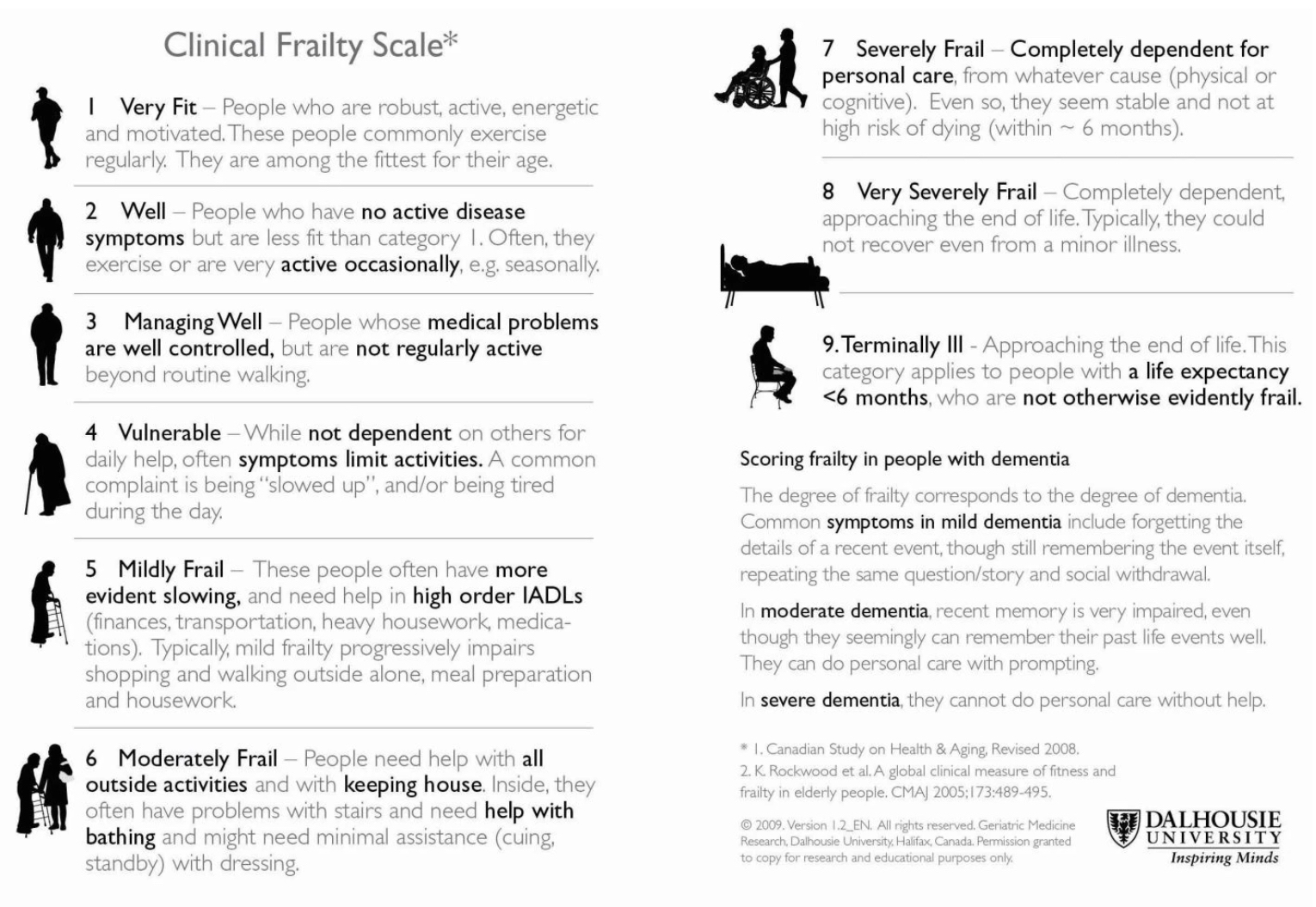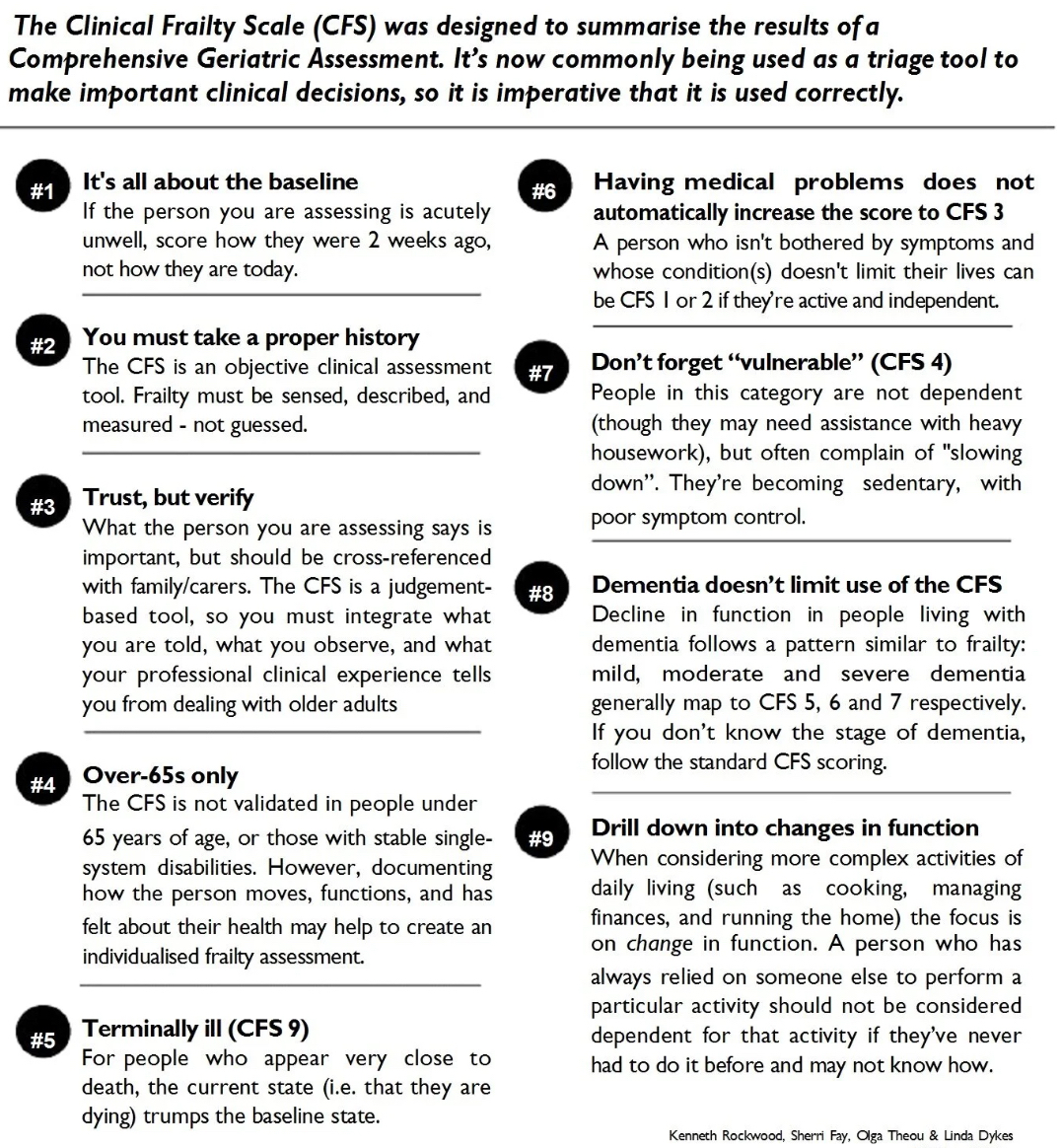Intro to Frailty
Frailty - a chronic disease or condition relating to the ageing process in which multiple body systems lose their built in reserves
Older people with frailty are at risk for unpredictable deterioration in their health resulting from minor stressor events eg an older frail person with dementia who’s moved from home to the emergency department is at risk of developing delirium or the prescription fo anti-cholinergic drugs causing delirium, falls due to postural hypotension or immobility due to constipation
Basically, the adverse consequences of the external stressors are predictable and therefore preventable if the diagnosis of frailty is made
Frailty occurs because of an interaction between sarcopenia (low muscle strength and mass that result in poor physical performance) and deficit accumulation
deficits include: any chronic disease, fatugue, weight loss, social isolation, and dementia - the more deficits you have the more likely to develop frailty
NOTE - you can have sarcopenia alone without having frailty, its the combo of it and deficit accumulation
This combination will result in a loss of reserve, impaired function and vulnerability to relatively minor external stressors
The Frailty Syndromes/Presentation
Immobility - sudden loss of mobility
Delirium - acute confusion or worsening of chronic confusion in those with dementia
Incontinence - can be urinary or fecal and can be new or the worsening of chronic incontinence
Susceptibility to side effects of medication - eg delirium and/or constipation caused from opiates and anti-cholinergic drugs and postural hypotension caused by cardiac drugs.
Falls - legs giving way, collapsing, found lying on floor
Even one syndrome from an older person should be looked into and they should be considered for frailty
IDISEMF - I Don’t Inspire Super Exciting Male Fantasy
Immobility, Delirium, Side Effects Medication, Falls
Frailty and Functional Decline as a result of hospitalisation
When an functional older person is hospitalised they are exposed to all of these external minor stressors such as
An alien environment, medicines, procedures, bed rest leading to immobility, possibly dehydration/malnutrition
For every day in bed an older person can lose 2-5% of their muscle mass
All of this can cause delirium, Physical impairment and deconditioning. Leading to a dysfunctional older person in as little as 24 hours.
Immobility can lead to pressure sores
Inappropriate prescription of drugs that cause sedation and postural hypotension can cause a fall and hip fracture
Inappropriate hospitalisation can cause delirium
All of the above increases risk of death and disability
What can be done to better manage older people with frailty
Screening - Timed Up and Go Test (of over 13sec) and a PRISMA 7 Questionnaire (of over 3) indicates high chance of frailty - this combo has high sensitivity and specificity
Comprehensive Geriatric Assessment - determines medical, psychological and functional capabilities and helps develop plan to address them
Get Up, Get Dressed, Get Moving - to prevent sarcopenia - sit up in bed, wear own clothes, walk at regular intervals
The Clinical Frailty Scale/Score (1-9)
Not to be used in isolation but to provide context

